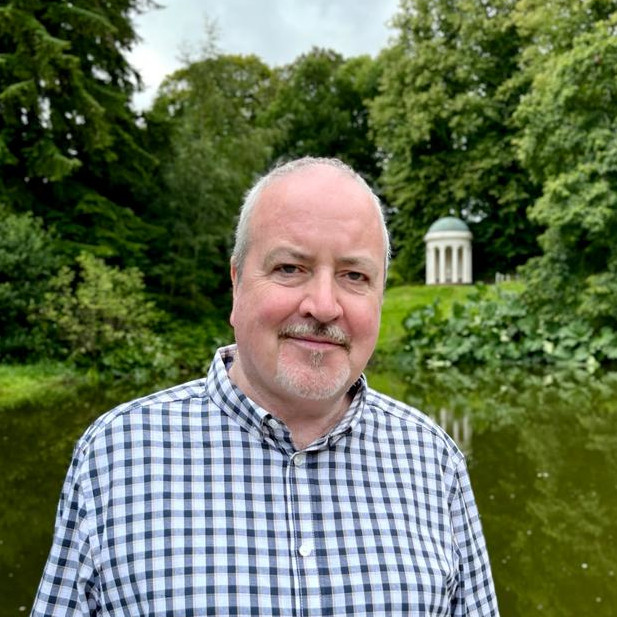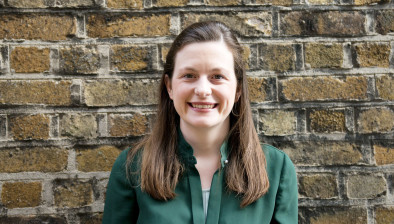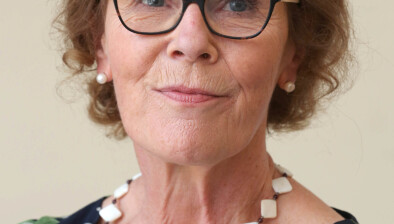Lawyer of the Month: Constance Cassidy SC
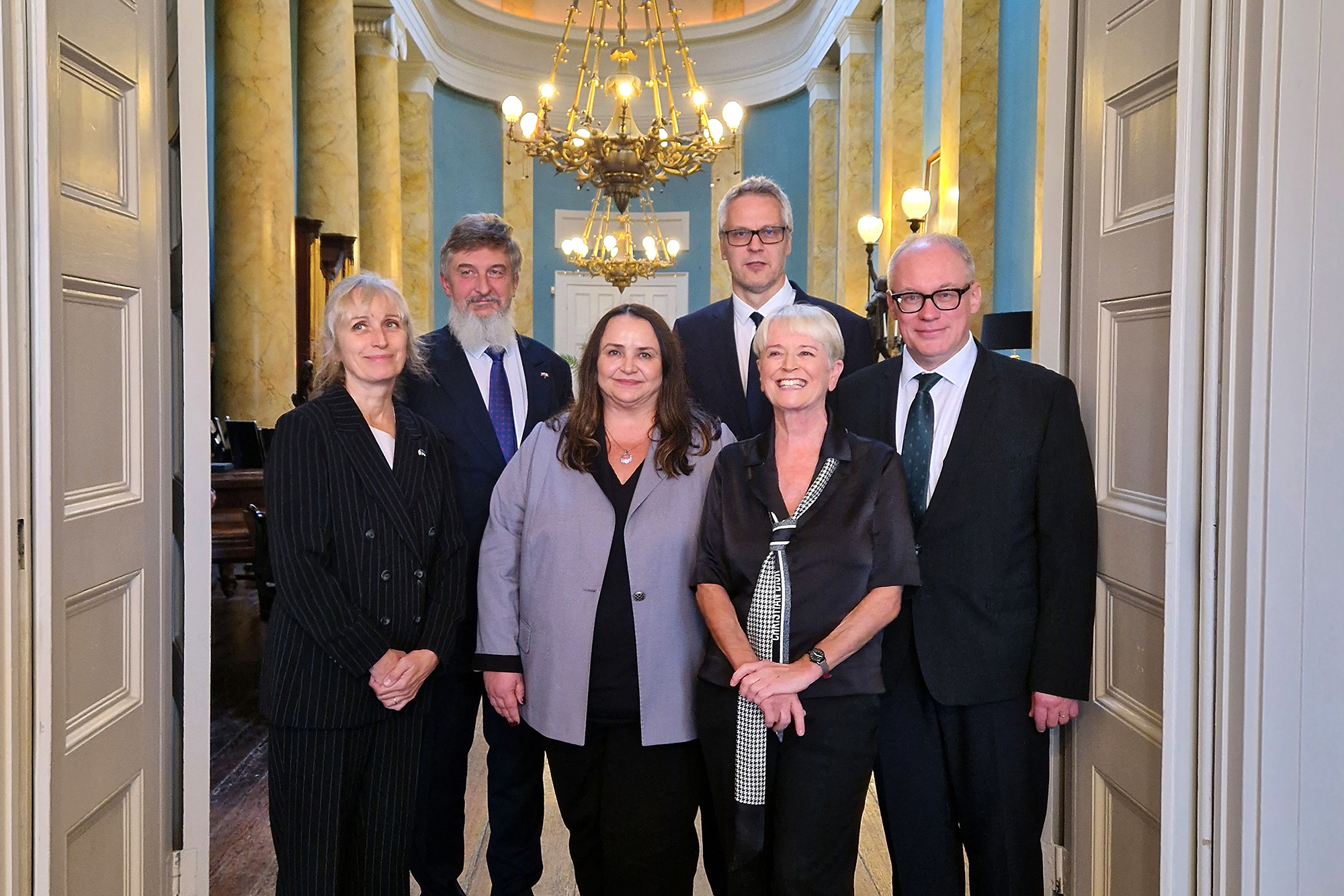
Pictured: Constance Cassidy SC (second from right) with Estonian ambassador Kairi Künka, Polish ambassador Artur Michalski, Ukrainian ambassador Larysa Gerasko, Latvian ambassador Juris Štālmeistars and Lithuanian ambassador Jonas Grinevičius on their group visit to Lissadell House in October 2025.
The word that regularly recurs in Constance Cassidy’s vocabulary is “busy”. Often augmented to “busy, busy, busy”. It’s hardly surprising. The senior counsel’s day has begun some five hours before our mid-morning interview and the number of appointments in her diary would be, for most of us, daunting.
“Let’s see,” she says, leafing through upcoming events. “I was in Tralee yesterday and next week I’m in Longford, Ennis, Limerick, Drogheda and… oh, apparently I’m in Bandon and Donegal soon — so yes, it is busy, but it’s a great profession to be in.”
Her life is also an enviably eclectic one. Recently, as the chatelaine of Lissadell House in Co Sligo, former home of the Gore-Booth family and her namesake, Countess Constance Markievicz, Ms Cassidy hosted the ambassadors of Ukraine, Estonia, Latvia, Lithuania and Poland.
Others who dropped in to visit have included King Charles III, then the Prince of Wales, and his wife Camilla; in 2015 the Cabinet held a meeting in the dining room at Lissadell to honour Markievicz.
However, as Christmas approaches, Ms Cassidy is concentrated on a singularly challenging contemporary issue: that of homelessness in Ireland.
This week sees the return of the Christmas lectures from Lawyers Against Homelessness (LAH) — a collaborative effort between barristers and solicitors, led by Ms Cassidy.
The energetic barrister was the founder of the fundraising initiative for the city’s Capuchin Day Centre, which provides support for homeless people in Dublin’s Bow Street, near where she and many others began their legal careers.
Ms Cassidy’s interest in the problems of the homeless date back to her placement in a solicitor’s office in Merchant’s Quay, opposite the Four Courts in Dublin, after she left school with her leaving certificate at just 16.
She recalls: “Merchant’s Quay, as you know, houses the Adam and Eve church. Working in the area, I could see the Capuchin friars busy helping and I was fascinated by them.
“My sister Pamela Cassidy, a solicitor, and my daughter Constance would help homeless people with hot water bottles and food — particularly at Christmas time — and my daughter asked how we could help further.”
From that was born the idea for continuing professional development (CPD) lectures for the legal profession which centred on the issue.
“Some years ago I approached Brother Kevin Crowley, and we agreed that we could have these lectures in the Capuchin Day Centre,” Ms Cassidy says.
“This is the 17th CPD seminar since the beginning. We have had three events every year, except during Covid. Christmas is always the busiest and the best attended.”
Over the course of the 17 events, an impressive sum of €550,000 has been raised so far.
Ms Cassidy works with a small committee of barristers and solicitors, including her husband Eddie Walsh SC, daughter Constance, son Harry and sister Pamela Cassidy.
“We contact judges, the attorneys general, various ministers, and experts in their chosen field — barristers and solicitors — and ask them to speak on a topic of their choosing,” she explains.
“No one has ever said no. Everyone in Ireland, including the legal profession, is fully aware of the scale of the housing crisis and wants to help.”
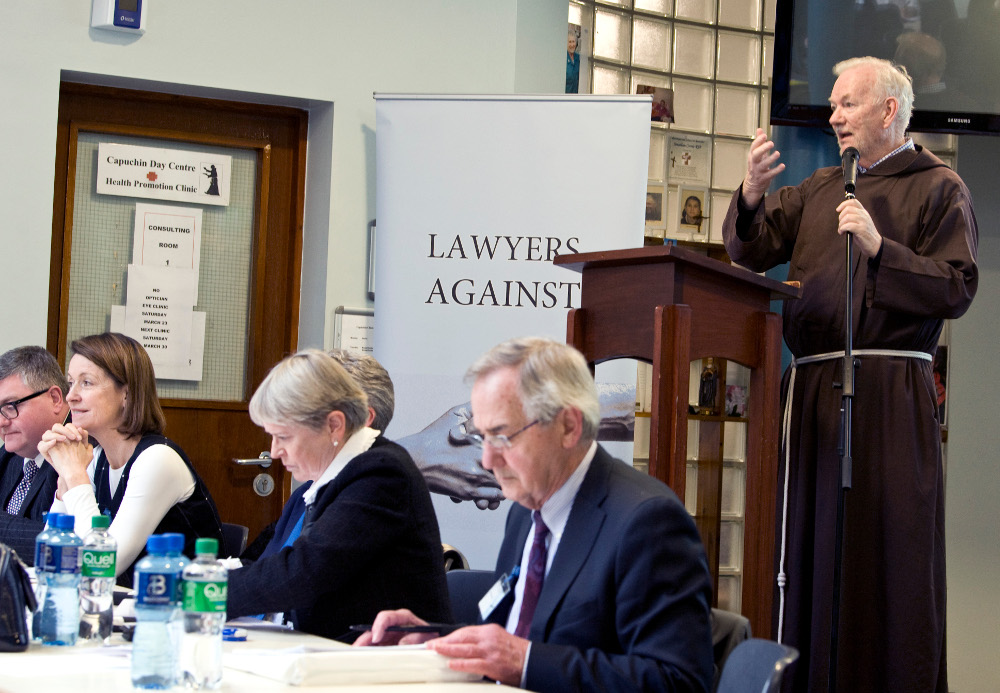
Pictured: Brother Peter Rogers addresses a Lawyers Against Homelessness event.
The CPD dates are very popular among the legal fraternity. “One reason is that the Capuchin Day Centre is part of our community. It’s right beside the Law Library and many solicitors’ firms.
“Importantly, there are no administration fees; 100 per cent of the money donated goes to the centre and people are impressed with that so we get very large donations from solicitors’ firms and indeed from barristers,” she says. “People are very good.”
It’s also a personal cause. Ms Cassidy founded Lawyers Against Homelessness with a view to helping Brother Kevin in his lifelong battle against homelessness.
“Sadly, he died this year and we had become very close indeed,” she says. “I used to visit him in his nursing home in Cork and we would chat on the phone.
“He told me something important: ‘When I was a young priest it occurred to me not to judge people because of the situation they are in. Every person who comes into the Capuchin Day Centre is given food and medical treatment in a caring environment without feeling under any pressure of any kind.’”
The day job — which necessitates a relentless series of journeys across the country from Dublin to Donegal and Kerry — is that of a barrister whose speciality is in licensing.
“The majority of my business is in that area and I travel all over the country to get licenses for hotels, for pubs, for off licenses and many retailers,” Ms Cassidy says.
That niche skill — and the law in general — is deep in the warp and weft of the family. Her sister Pamela is a solicitor, while three of her children studied law and her son Harry is a barrister. Her father was a barrister and later judge of the Western Circuit. Her mother served in the Senate from 1977 to 1981.
“My husband, Eddie Walsh SC, is a barrister and my father, John Cassidy SC, was the son of a publican, who became the acclaimed expert in licensing in this country,” she explains.
As the granddaughter of a publican and the daughter of a specialist in that field, it was a natural place to go. “It’s an interesting area,” she adds. “The licensing code is a very restrictive one, based on the Licensing (Ireland) Act 1902 which prohibited the grant of new publicans’ licences, save in very exceptional circumstances.
“The code has been liberalised by the Intoxicating Liquor Act, 2000, which amended many of the provisions of the Act of 1902 regarding the grant of a new on licence or a new off licence, without restrictions as to parish or distance or even type of licenses.
“But it’s curious that an act brought in by the English as a temporary measure to stop the explosion of public houses in every town in Ireland is still in force, albeit in an amended format.”
Ms Cassidy has written the seminal text, Cassidy on the Licensing Acts, the fourth edition of which — running to almost 2,000 pages — will be published by Clarus Press. She has also written various handbooks on different areas in the licensing code.
Though from Co Kildare, where she lives in a 17th-century house near Newbridge, Ms Cassidy’s other passion — and for which she is best known by many — is Lissadell House and gardens, the neo-classical Greek Revival country house in Co Sligo, the childhood home of Irish revolutionary Constance Gore-Booth, later Countess Constance Markievicz, where poet William Butler Yeats was a frequent guest.
She and her husband Eddie bought the estate 22 years ago, and despite a protracted case over rights of way across the 410-acre estate fought with Sligo County Council which the family finally won in the Supreme Court in November 2013 (a struggle that she admits was “bruising”), the couple and their family have since turned it into a successful, well-run family business.
When asked why the couple bought a rather austere Georgian mansion perched on the edge of the wild Atlantic, she laughs heartily (she laughs a lot). “Don’t ask me why I did it. Ask my husband. He was very interested in the property when he saw it for sale in the Irish Times.
“We had seven children and while he felt it would be a good business opportunity, to attract tourism to a rock on this side of the Atlantic Ocean, the children love it. Lissadell has been part of all their lives, and they are very emotionally involved in the place, as well as helping Eddie outside and helping me inside — because it’s hard work.
“And remember, as you must, that all Irish Constances were called after Countess Constance Markievicz, me included, because my father named me after her. So that’s something of a coincidence, but it’s another part of my life which I love.”
She sums up her career in the law, her involvement with LAH and her obvious pride in Lissadell to what her father used to tell her as a young girl: “Anything that is worth doing, is worth doing well.”






